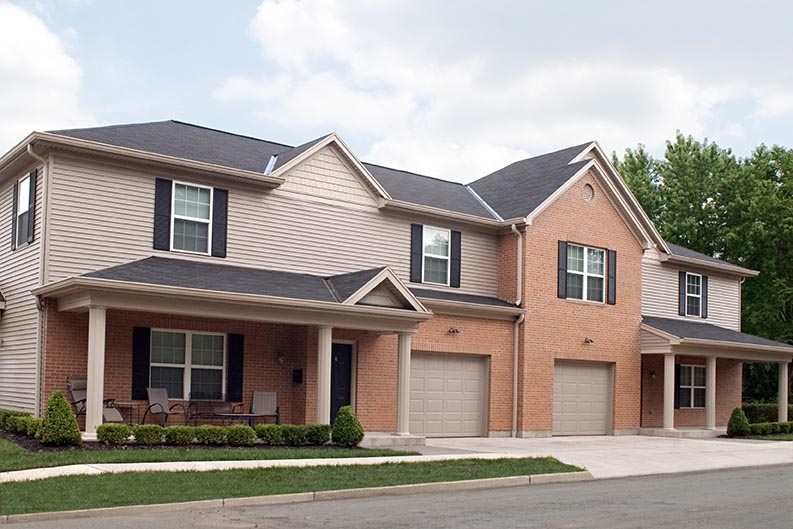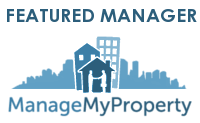
Real Estate Investing
Have you read Rich Dad Poor Dad?
Robert T. Kiyosaki is the author of this best-selling and controversial book about gaining wealth. He prioritizes real estate investing as the main way to build wealth. And he’s not the only one who used real estate investing to grow his financial portfolio. Just one afternoon of watching HGTV will have almost anyone interested.
Watching show after show of homeowners purchasing and rehabbing homes in order to have the home of their dreams or to turn a hefty profit, sounds like the new way to “win the lottery”. But are the shows for real? It depends on what you mean by real.
Many critics of Rich Dad Poor Dad Real Estate Courses have the same problems with him as they do with these shows- that they fail to show the real risks and costs involved in real estate. They all say that it takes education- whether in courses or in ‘trial and error’ to really make the big money in real estate investing.
Learning from a professional is the most important component. And real estate investing should be treated as any investment, which includes knowing your costs and expected return. In a Forbes interview with Scott McGillivray, the co-host of Flipping the Block and revered real estate investor said:
“Using cash flow as an indicator to whether a property is a good investment or not helps protect a buyer from being stuck in a scenario where not only is the value not there, they’re actually losing money.”
He goes onto say that people need to not focus on market value but rather on positive cash flow. This means that you are looking at what your mortgage payment will be on the property versus what you can earn in revenue. It is important to know that you as the owner will be responsible for all taxes and the costs of maintaining the property, just as it would be if you lived in it. There are additional costs such as marketing the property to obtain tenants and perform any background checks.
One strategy is to pay just enough to ‘break even’ until the mortgage is paid off fully and the rent payments become almost entirely profit. The property will likely increase in value- historically home values have gone up over time, as have rents.
Another strategy is to use a real estate investment group or property manager. If you want to own investment property but don’t want to be a landlord, this is a great strategy. The group or property manager is responsible for actively managing the property or properties including obtaining tenants, maintenance and legal matters, in exchange for a fee.
The additional benefit of using an investment group or property manager is that they are the professional education you need. They are aware of the market including the home’s value and the calculation of cash flow expectation.
If you have questions about real estate investing, your home’s value and what rents would be likely on a home, call 720 989 1996 or contact us!

Aurora, Denver, Property Management, Real Estate Investing
We get this question frequently: What can I expect to earn in Denver real estate income from my home rental property in the long run?
When people are considering investing in real estate, especially when considering if they should sell or rent their property, the main thing they need to be considering is cash flow. Below is the process we do, but simplified.
Selling the Denver property questions:
What is the mortgage payoff?
What will the home sell for?
What is the difference?
Renting the Denver Home property questions:
What is the appropriate amount of rent for a Colorado home?
The appropriate amount is not a number you want, but rather what the market can actually bear. A professional property manager should be able to give you this number.
What is the home mortgage amount due?
This number should include principal, interest, insurance and taxes.
What is the HOA cost? Will this number be included in the rent or not?
What other utility costs are there and will they be included in the rent?
Consider: Sewer, Water, Electricity, Gas, Snow Removal, Lawn Maintenance, Trash removal and any others that apply. This is an important number to know because they will be your responsibility if the unit isn’t occupied.
What do you need for a savings reserve? In this number, take into consideration:
- Maintenance fees. This number should be between 5-25% depending on the age of the house and its condition, including if remodeling has been done or not. Homes under 10 years old will be 5-15% and homes over 50 years of age will be closer to the 15-25% range.
- Transition savings. This number will be the expected money that will be banked for the time between tenants. A property manager can give you a good sense of your market and how much should be put aside.
- Property Management fees. These fees are worth their weight in gold. A good property management company will pay for itself in reduced legal issues, better tenants, better maintenance and more.
An example for Denver and Aurora rental home owners
Let’s take a hypothetical example. Of course, this is a simplified example for illustration only and is not advice. For professional support on your unique situation, contact us, a financial professional, and a tax professional.
John and Lisa Jones own a home and are moving out of state and are considering selling vs. renting out the property to a tenant.
Jones hypothetical selling the Colorado property questions:
- What is the mortgage payoff? $212,000
- What will the home sell for? $300,000
- What is the difference? 88,000
This is a one time chunk of money that they will pay capital gains on unless they purchase a new property. Talk to a CPA about how this works.
Jones hypothetical renting the property questions:
- What is the appropriate amount of rent? $2200/mo.
- What is the mortgage amount due? $1235/mo.
- What is the HOA cost? NONE
- What do you need for a savings reserve?
o Maintenance fees. 10%: $220/mo.
o Transition savings. 5%: $110/mo.
o Property Management fees. 12%: $264/mo.
Projected Income: $2200/mo.
Projected Expense: $1829/mo.
Difference: $371/mo.
In this scenario, the $88,000 would be returned in under 20 years, and the property will have grown in value. This also assumes the rent NEVER went up in 20 years. So at the end of thirty years the Jones would have:
A sold house that allowed them to get another house that has increased in value OR
A home they are living in that has increased in value AND a rental home that is free and clear of a mortgage payment. Their potential income then increases from $371/mo. to $1606/mo. and this can continue into retirement as a residual income.
There are additional tax benefits and consequences as a real estate investor that you should be aware of that apply in each scenario. They include what deductions are allowing whether you are living in the house or not.
This illustration is for educational purposes only and does not serve as legal or investment advice. Please contact a professional to discuss your specific situation as the numbers could be very different.
Call 720 989 1996 and let us show you how renting a home in Denver and Aurora Colorado pays!
[gravityform id=”4″ title=”true” description=”true”]

Property Management, Real Estate Investing
Income property investing can be tricky.
However, a property management company can help you find the right income property to invest in.
If you’re considering buying a residential property to rent out, the potential return on investment is encouraging and exciting. But sometimes choosing the right income property can be overwhelming. If you need some guidance finding the right house, condo, or townhouse to purchase, a property management company in Aurora, Centennial, Denver, Highlands Ranch or other cities, we can help.
With an income property, it’s always good to keep the big picture in mind. Over the long run, the value of the property will increase, making it a sound investment. Ideally, you’ll want to see some short-term profit too, but to do so your income must exceed your expenses. Before you purchase a property you need to consider how much the following items will cost:
- Loan payment
- Insurance
- Taxes
- Utilities (depending on whether you or the tenant will pay these)
- Maintenance needs
- Other dues, such as Homeowner’s Association
Next, you need to find out how much rent you can get for a specific income property.
For this, it’s best to go to an expert. Different factors will affect rent amount including:
- Neighborhood
- Strength of the rental market
- Size of property
- Updates in the unit
There’s really no need to be stressed about purchasing an income property because there’s little risk when you get a property management company with experience involved. They can tell you what to expect regarding expenses and income, and will even help you find the right place for you.
Investing in real estate by using an income property plan is a healthy way to diversify your savings portfolio. You can building a strong financial future for you and your family, rather passively.
If you’re ready to jump into buying an investment property and need some guidance, contact us. Legacy Properties-PM wants to help you as you work to leave a financial legacy for your family. Call us at 720.989.1996 or contact us.

Property Management, Real Estate Investing
When many people think about a real estate investing strategy, they often look only at properties in their own geographic area.
This might be a wise idea if a person plans on dealing with all the landlord responsibilities themselves, or doesn’t have a property manager they feel confident in, but a quality property management company can open up a whole new world.
Thinking about having to travel by plane or long road trip to visit and check on your property can cause anxiety. Some people never even consider it because they start to ask themselves, “What do I do if the tenant doesn’t send the rent? What if there’s an urgent maintenance issue, like a broken furnace or a leak in the roof? How do I know the renters are taking care of the place and not trashing the property?” Obviously it’s not an option to travel every time an issue comes up, but with a well-qualified property management company, there’s no need to fret over these questions.
In the greater Denver and Aurora area, Legacy Properties-PM is a property management company that takes care of everything on your list of concerns. Because they started out managing their own properties, they are experts at showing and renting you property, taking care of leasing paperwork, collecting rent, dealing with maintenance needs, performing property reviews, and even evicting tenants.
Whether you live close by or the other side of the country, there’s no need to worry when you have an experienced property management company that truly cares about your property and your investment.
When you hire Legacy Properties-PM, a property management company you can trust, it opens doors to other markets for investments. The Denver market is busy with people constantly moving to the region to take advantage of all the area has to offer. If investing in this area is something you’d like to consider, Legacy Properties-PM can even help you find a desirable property at a great price.
If you’re ready to think outside the box and invest in a single family home, condo, or townhouse in the greater Denver area, contact us or call 720.989.1996.
Even if you live out of town, our property management services make it a great option for investors.








